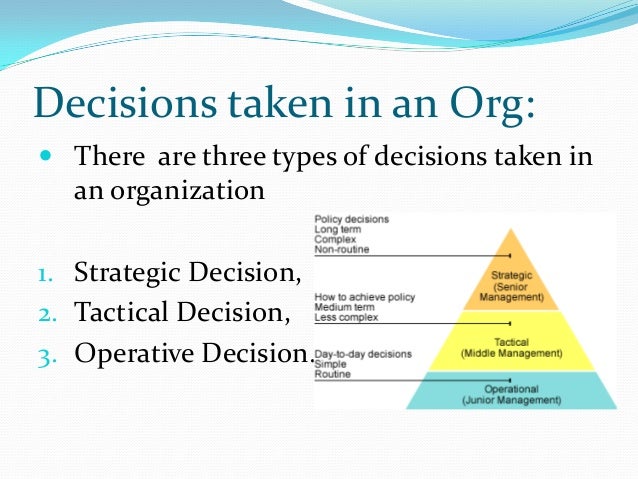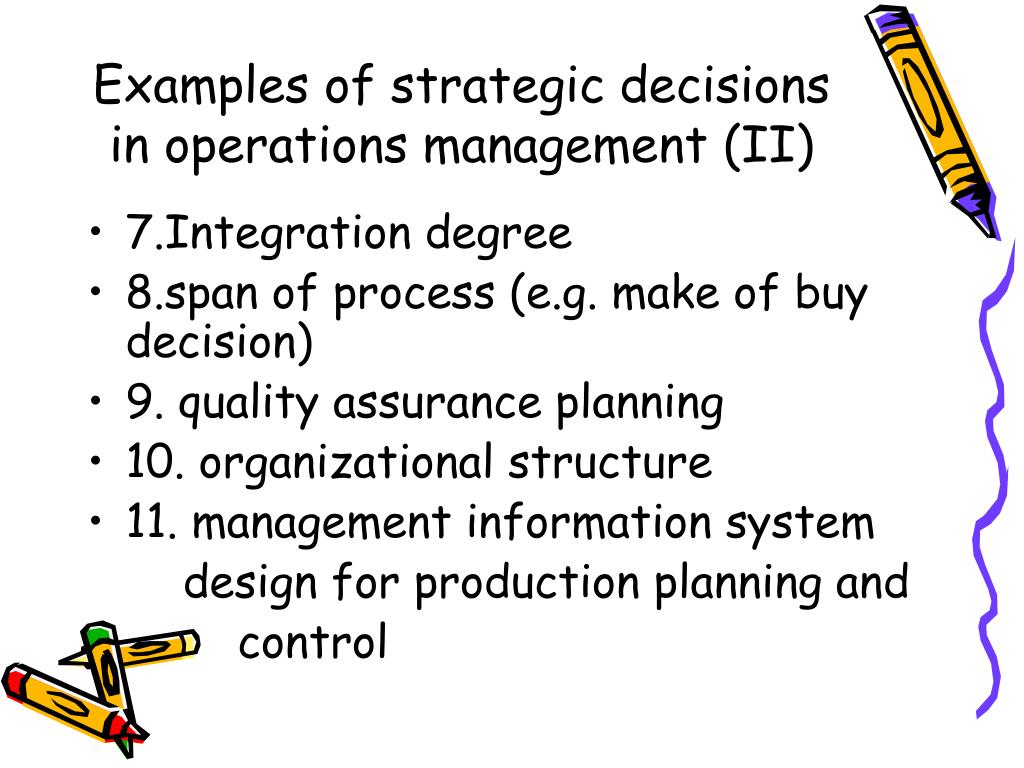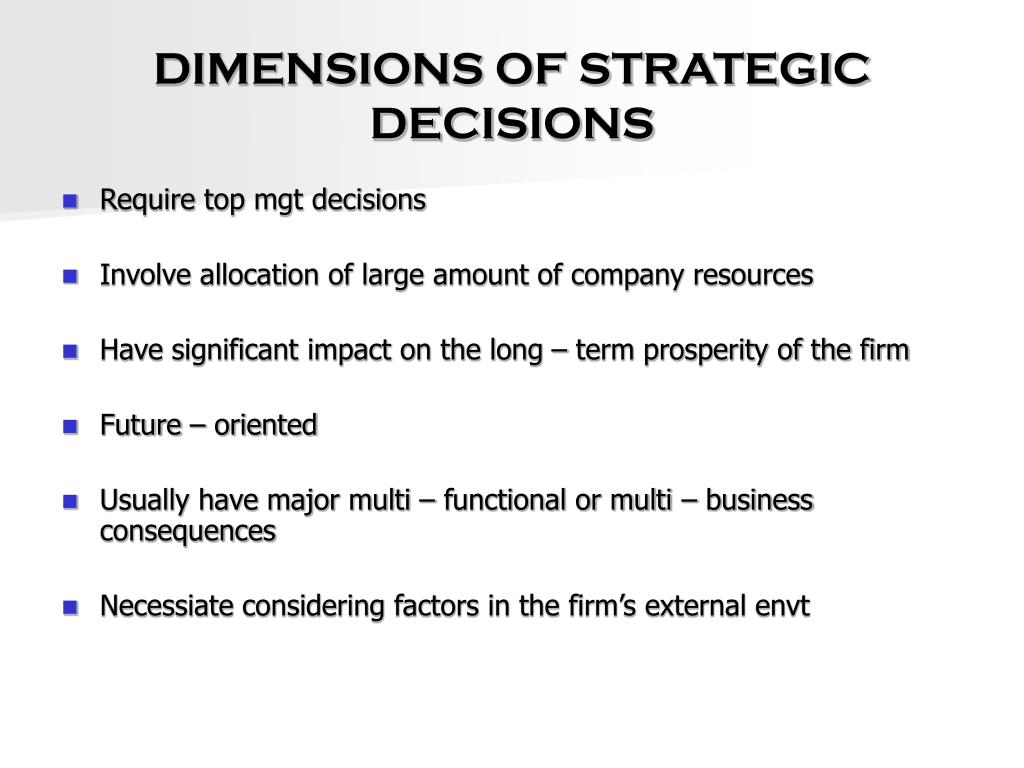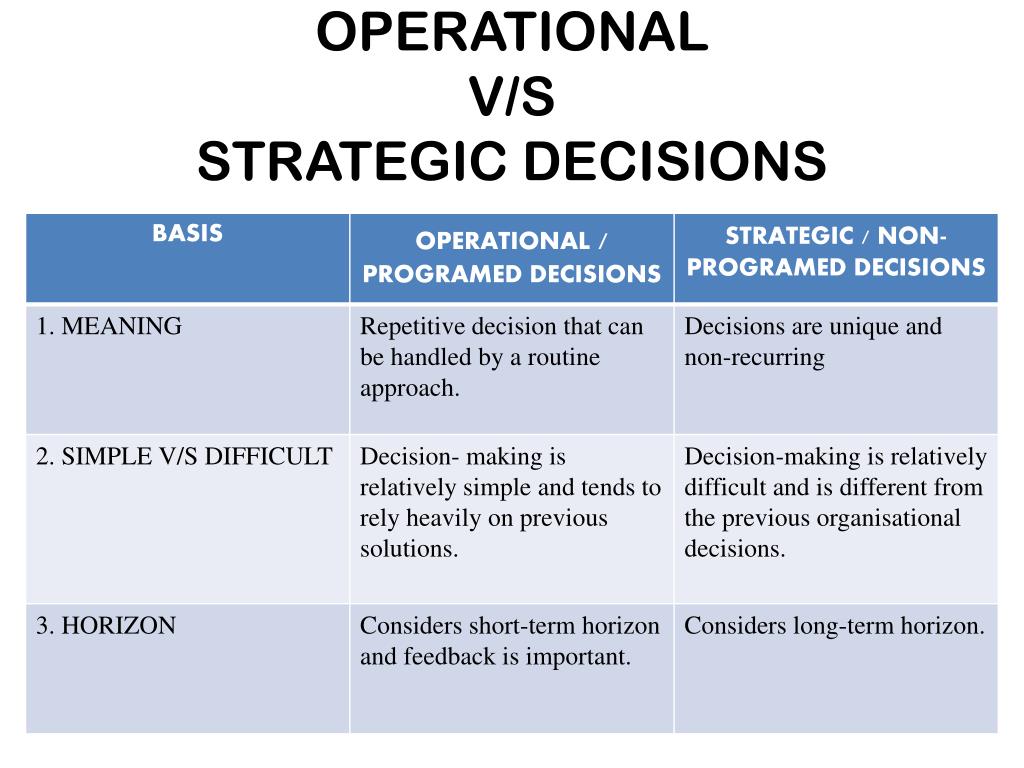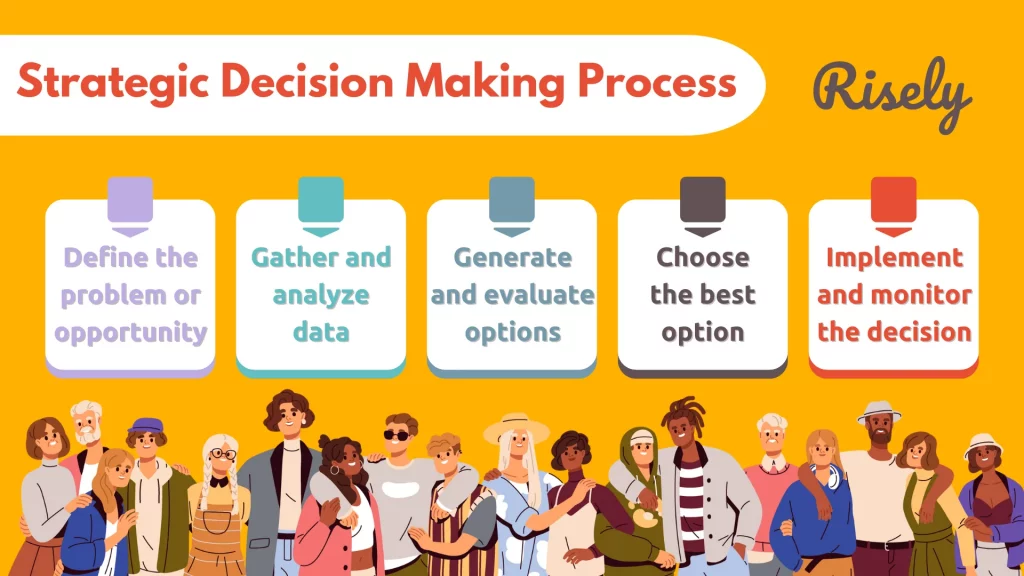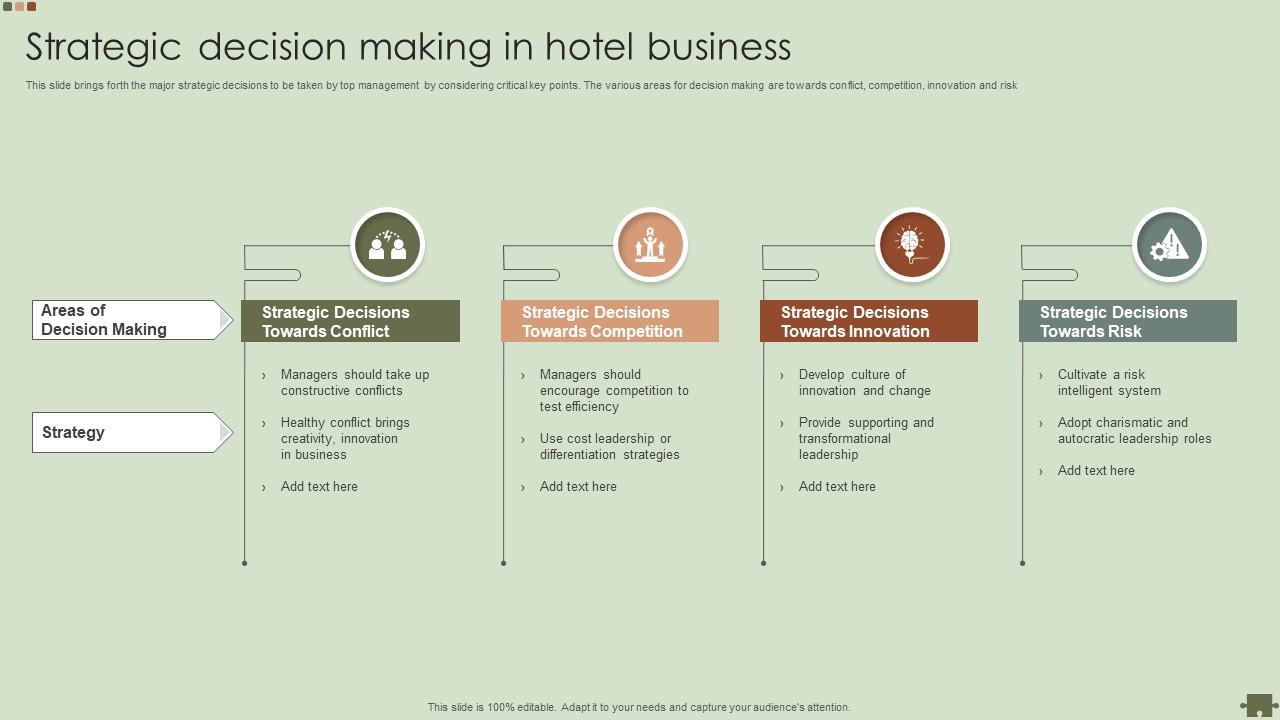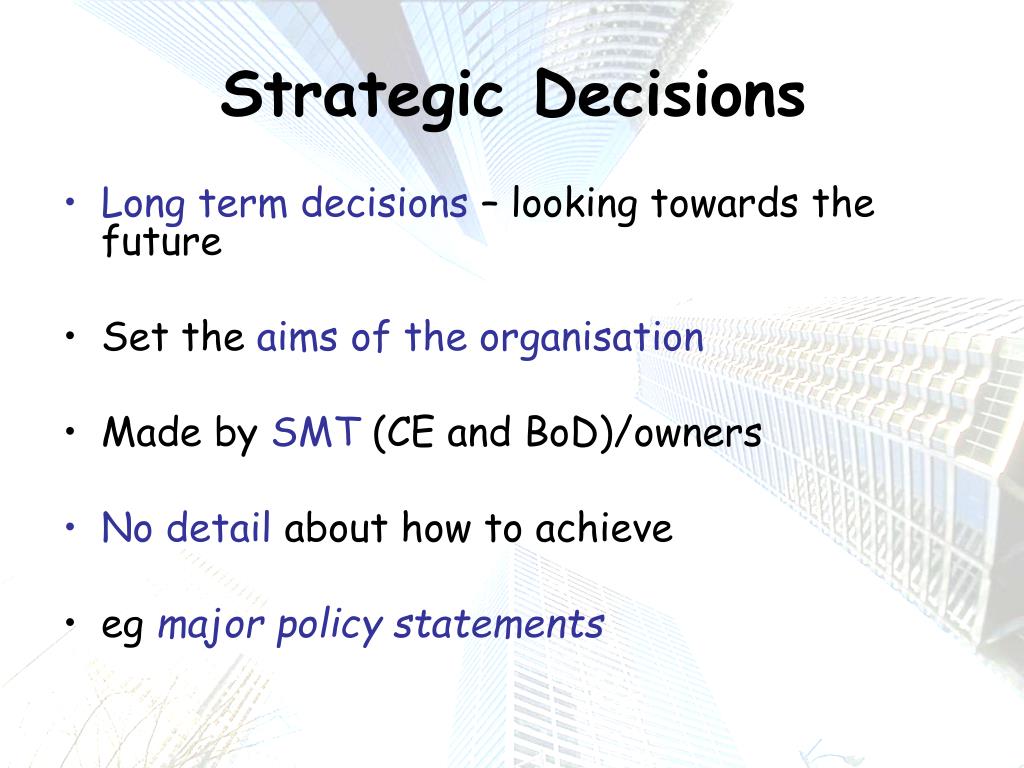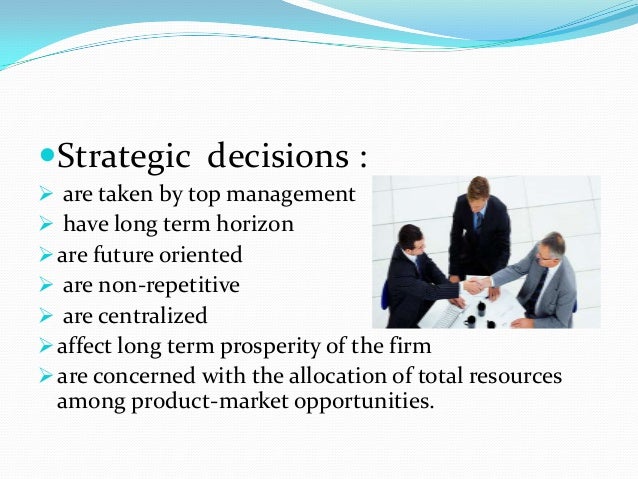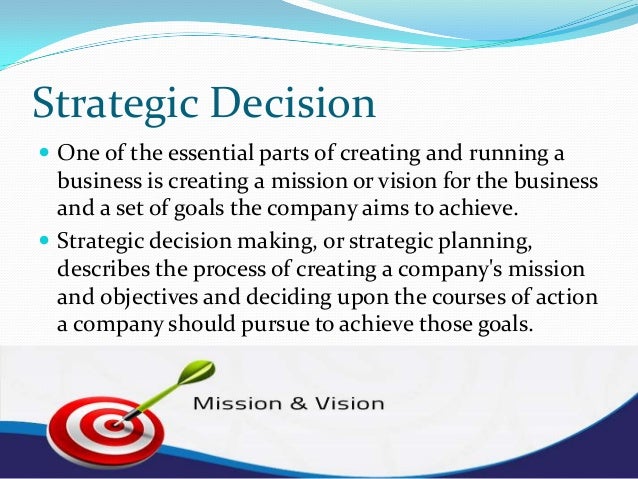Examples Of Strategic Decisions In Business

In the ever-evolving landscape of global commerce, businesses face a constant barrage of challenges, from disruptive technologies to shifting consumer preferences. The decisions made in the face of these challenges can either propel a company to unprecedented success or lead to devastating failure. The wrong strategic move can render a once-dominant player irrelevant in a rapidly changing market.
Strategic decisions are high-level choices that define the direction of an organization and impact its long-term success. These choices are not about day-to-day operations, but instead involve significant resource allocation, market positioning, and competitive advantages. Here, we delve into examples of strategic decisions, examining the rationale behind them, and the consequences they unleashed.
Technological Pivots and Market Adaptations
One of the most striking examples of a successful strategic pivot involves Netflix. Initially a DVD rental service, Netflix recognized the burgeoning potential of streaming technology. The company made the bold decision to invest heavily in building a streaming platform, even cannibalizing its existing DVD rental business.
This strategic choice was not without risk, but it ultimately paid off handsomely. By embracing streaming, Netflix positioned itself as a leader in the entertainment industry, outpacing traditional media companies that were slow to adapt.
Case Study: Apple's Diversification
Apple's trajectory offers another compelling illustration. Though initially synonymous with computers, Apple strategically diversified its product line. The introduction of the iPod, followed by the iPhone and iPad, transformed Apple from a computer company into a consumer electronics powerhouse.
This strategic diversification shielded Apple from over-reliance on a single product category. It also allowed the company to capture new markets and cement its position as a global technology leader.
Mergers, Acquisitions, and Divestitures
Strategic decisions often involve mergers, acquisitions, and divestitures. These actions are frequently undertaken to expand market share, enter new industries, or streamline operations. Disney's acquisition of Pixar in 2006 is a prime illustration of the power of strategic mergers.
Disney recognized Pixar's superior animation technology and storytelling capabilities. By acquiring Pixar, Disney revitalized its own animation studios and secured a competitive advantage in the entertainment industry.
The Flip Side: Strategic Divestitures
Conversely, strategic divestitures can also be beneficial. General Electric (GE), once a sprawling conglomerate, has strategically divested several of its business units in recent years. This move aimed to focus on its core industrial businesses and simplify its overall structure.
While the long-term consequences of GE's divestitures remain to be seen, the strategy reflects a desire to improve efficiency and enhance shareholder value.
Global Expansion and Market Entry
Expanding into new geographic markets is another critical strategic decision for many businesses. Starbucks' expansion into China offers an interesting example. Despite cultural differences and challenges in adapting its menu, Starbucks successfully established a strong presence in the Chinese market.
This strategic expansion allowed Starbucks to tap into a rapidly growing consumer base and diversify its revenue streams. The company tailored its offerings and store designs to suit local preferences.
Challenges and Considerations
However, global expansion is not always a guaranteed success. Companies must carefully consider factors such as political stability, regulatory environment, and cultural nuances. Misjudging these factors can lead to costly failures and damage a company's reputation.
For example, several companies have faced significant challenges when entering markets with complex regulatory frameworks or strong local competitors.
Ethical Considerations and Social Responsibility
Increasingly, strategic decisions must also take into account ethical considerations and social responsibility. Consumers are becoming more conscious of the environmental and social impact of the products they buy. Companies are facing pressure to adopt sustainable practices and demonstrate a commitment to social justice.
Unilever, for example, has implemented a Sustainable Living Plan, integrating sustainability into its business strategy. This initiative reflects a growing recognition that ethical considerations are not merely a matter of public relations, but a fundamental driver of long-term business success.
The Future of Strategic Decision-Making
In the years ahead, strategic decision-making will likely become even more complex and challenging. Technological advancements, global interconnectedness, and heightened social awareness will continue to shape the business landscape. Companies that can adapt quickly, embrace innovation, and prioritize ethical considerations will be best positioned to thrive.
The ability to anticipate future trends, analyze complex data, and make bold, yet informed decisions will be paramount. Those who fail to do so risk being left behind in an increasingly competitive world.

